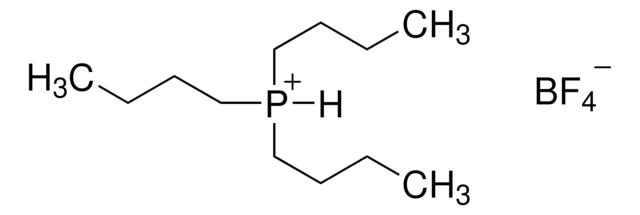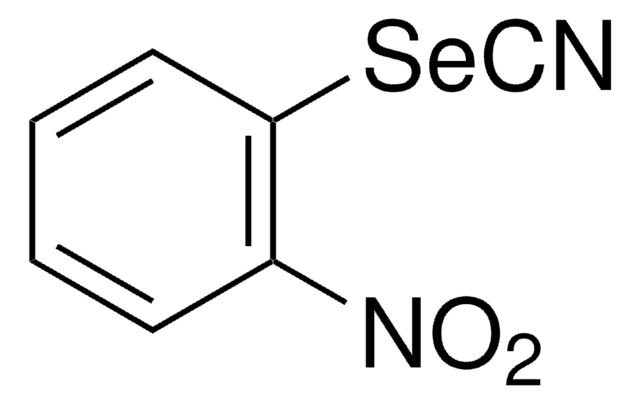T49484
Tri-n-butylphosphine
97%
Synonym(s):
Tributylphosphine, NSC 91700, P(n-Bu)3, TBP
About This Item
Recommended Products
vapor density
9 (vs air)
Quality Level
Assay
97%
autoignition temp.
392 °F
reaction suitability
reagent type: ligand
reaction type: Acetylations
reagent type: ligand
reaction type: Addition Reactions
reagent type: ligand
reaction type: Stille Coupling
refractive index
n20/D 1.462 (lit.)
bp
150 °C/50 mmHg (lit.)
density
0.81 g/mL at 25 °C (lit.)
functional group
phosphine
SMILES string
CCCCP(CCCC)CCCC
InChI
1S/C12H27P/c1-4-7-10-13(11-8-5-2)12-9-6-3/h4-12H2,1-3H3
InChI key
TUQOTMZNTHZOKS-UHFFFAOYSA-N
Looking for similar products? Visit Product Comparison Guide
Related Categories
Application
Signal Word
Danger
Hazard Statements
Precautionary Statements
Hazard Classifications
Acute Tox. 4 Oral - Aquatic Chronic 2 - Eye Dam. 1 - Pyr. Liq. 1 - Skin Corr. 1A
Storage Class Code
4.2 - Pyrophoric and self-heating hazardous materials
WGK
WGK 2
Flash Point(F)
242.6 °F - closed cup
Flash Point(C)
117 °C - closed cup
Personal Protective Equipment
Choose from one of the most recent versions:
Already Own This Product?
Find documentation for the products that you have recently purchased in the Document Library.
Customers Also Viewed
Articles
Solvothermal synthesis of nanoparticles: applications from nanocircuits and nano-optical circuits to nanomagnetics and biotech.
Solvothermal synthesis of nanoparticles: applications from nanocircuits and nano-optical circuits to nanomagnetics and biotech.
Solvothermal synthesis of nanoparticles: applications from nanocircuits and nano-optical circuits to nanomagnetics and biotech.
Solvothermal synthesis of nanoparticles: applications from nanocircuits and nano-optical circuits to nanomagnetics and biotech.
Our team of scientists has experience in all areas of research including Life Science, Material Science, Chemical Synthesis, Chromatography, Analytical and many others.
Contact Technical Service












